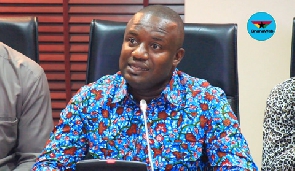Gushegu,(N/R), May 26, GNA - Global Action Week on Education, an annual event to promote education, has been marked in Gushegu in the Northern Region with a call on stakeholders to do more towards improving the falling standards of education.
The Ghana Education Service (GES) has also been tasked to effectively monitor teachers and students to ensure they carried out their responsibilities for the attainment of the goals of education while district assemblies and the central government must vote more funds and resources to education.
The forum, which was on the theme: 94Women and Girls' Education; It is a Right, Make it Work," was organized by the Northern Network for Education Development (NNED), an NGO based in the Northern parts of the country, which champions educational issues.
Mr. Fuseini Alhassan, Gushegu District Chief Executive, who lauded education as the bedrock of nation's development said the district had revived its supervisory roles on education and had devoted some resources to providing educational facilities for teaching and learning.
He observed that though the Basic Education Certificate Examination (BECE) results in the district had been bad, efforts were being made to improve the system, saying there had been an improvement over the past years.
Mr. Alhassan said as part of efforts to include women in the local governance system, the government appointed four women as assembly women to serve as role models for the young girls in the area as well as cushion girl-child education.
Mr Gaskin Dassah, Coordinator for NNED, said the NGO had been joining hands with other civil society organizations and stakeholders to assist the government in meeting its goals on education.
He explained that the global action week highlights the challenges in education in relation to the MDGs.
He said the aim of the celebration was to influence government and local authorities to make urgent interventions to increase funding and support for education that will address gender disparity.
Mrs Leocadia Zarkpala, Director of Education for Gushegu, in a speech read for her, said more than 65 per cent of pupils in the district could neither read nor write explaining that the district has been lagging at the bottom of the national academic league for three consecutive years.
This is in spite of the numerous resources pumped into the sector, he said, and attributed the problems to the lack of commitment of teachers to their profession, inadequate qualified teachers, inadequate supervision and the inability of parents to commit to education.
Mrs Zarkpala observed that most BECE graduates in the district cannot pursue higher education and are also unable to develop employable skills and expressed worry that teenage pregnancy was also increasing the population of the district thus becoming a toll on resources.
A similar picture was also painted in a survey of the Karaga District conducted by Alliance for Change in Education (ACE), an NGO, which revealed that there were high dropout cases from the primary schools to the Junior High of both boys and girls.
Regional News of Thursday, 26 May 2011
Source: GNA
















